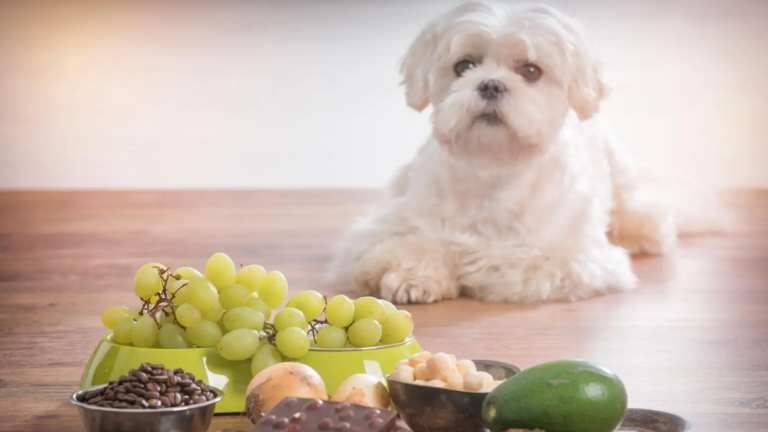Here are ten toxic foods you shouldn’t give your dog because they can cause serious health problems, from avocado peels to macadamia nuts.
Many dog owners know that chocolate can cause them serious problems. However, there are a lot of other common foods that you likely have at home that can cause serious problems for your pet. There may be other foods or products in the house that you need to protect your dog from, so it is best to consult your veterinarian before giving your dog something in addition to the usual food.
CONTENT:
- Milk, cream and cheese
- Walnuts and hazelnuts
- Grapes and raisins
- Garlic and onion
- Fried and fatty foods
- Chocolate
- Caffeine
- Alcohol
- Avocado
- Artificial sweeteners
-
Milk, cream and cheese
As dogs mature, their ability to digest dairy products decreases as they begin to lack the necessary enzymes. This means that a dog that eats milk, cream, or cheese may show signs of lactose intolerance, such as vomiting, diarrhea, or stomach problems.
-
Walnuts and hazelnuts
Although they may look healthy, avoid giving your dog nuts and hazelnuts. Due to their size, they run the risk of suffocation. Also, they are high in fat, which can cause stomach problems. Macadamia nuts have been shown to be extremely toxic to dogs; although they generally do not cause death, they can have effects such as inability to walk, vomiting, lethargy, and tremor in the dog.
-
Grapes and raisins
These fruits are quite healthy for humans but are toxic to dogs. Grapes and raisins have a strong effect on the health of dogs, which can quickly cause acute kidney failure.
-
Garlic and onion
Many people regularly use onions and garlic in their diets, but for dogs, these staple foods are toxic. Whether the garlic and onion are cooked or raw, swallowing them by the dog can affect the red blood cells, which can lead to anemia.
-
Fried and fatty foods
Just as fried and fatty foods can be harmful to humans, so can dogs. High-fat foods can cause stomach problems and can lead to pancreatitis in some dogs. Besides, regular consumption of these foods can lead to obesity and associated health problems.
-
Chocolate
It is well known that chocolate is very toxic to dogs. This is because chocolate contains theobromine, a stimulant that disrupts the dog’s metabolic processes. Dark chocolate and homemade chocolate have a very high content of theobromine, which makes them extremely dangerous for dogs. Depending on the amount consumed, a dog may have stomach problems, heart problems, seizures, or even die.
-
Caffeine
Although caffeine is not toxic to dogs, it has the same effect on dogs and humans – and because a dog is more sensitive to these effects, its discomfort will be much greater. If your dog consumes even a small amount of caffeine, it may become hyperactive or start to tremble.
-
Alcohol
Unlike humans, dogs’ kidneys cannot process alcohol effectively, which can lead to medical problems. Fresh and clean water is always best for your dog.
-
Avocado
Not the flesh of an avocado, but its seeds, bark, and leaves can harm your dog. They contain a substance called persin, which causes vomiting and diarrhea.
-
Artificial sweeteners
Xylitol is an artificial sweetener found in chewing gum, sugar-free peanut butter, toothpaste, and many other products and is made from a species of hardwood tree. Excessive use of xylitol can cause bloating, flatulence, and diarrhea in humans – but for dogs, xylitol is simply toxic. It is important not to leave xylitol-containing products in places that are easily accessible to your dog, as he may eat them, even accidentally.
If your dog has eaten something that is not recommended, it is important to seek medical advice immediately. You should also not store these toxic foods in places that are accessible to your dog. You need to make sure that he eats only what is right for him.

